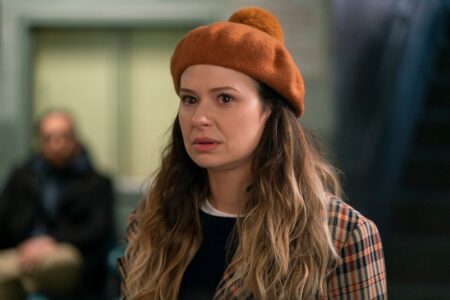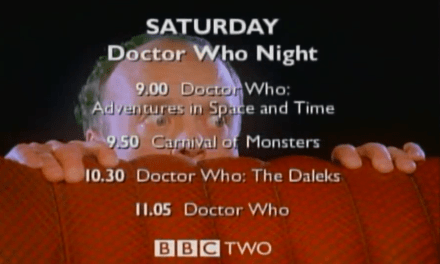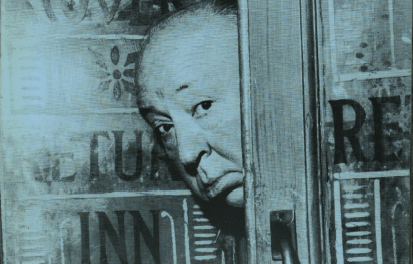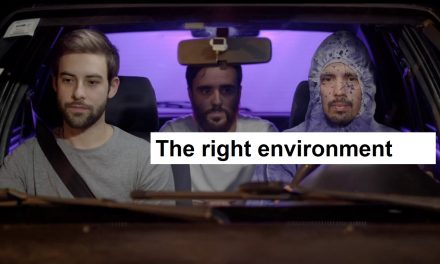When Inventing Anna debuted on Netflix on 11 February, a familiar debate about the relationship between fact and fiction was ignited. While Anna Delvey’s (Julia Garner) claims to be a German heiress were a web of lies, her extorsions as depicted in miniseries did occur – and the characters that surround her equally exist. Among these is Rachel DeLoache Williams (Katie Lowes), whose non-fictional counterpart has been biting back in the very US magazines that shaped the story in the first place.
Williams’ essay in Air Mail, perhaps unsurprisingly written prior to her watching the series, comes from a perspective familiar to the recent discourse around The Crown, pursued by the popular press and even a particularly idle secretary of state. So much so that there seems to be a playbook for such short-sighted commentary: open by praising the production values/writing/acting to give a vague sense of having engaged with the series, before insisting that viewers cannot possibly distinguish between fact and fiction, and offering a litany of facts that demonstrate the drama’s egregious disregard for the truth. Hence Williams’ assertion that Netflix is ‘effectively running a con woman’s P.R.’, recuperating Anna from notorious fraudster to empathetic hero. She goes further in a noticeably sympathetic interview with her former employer Vanity Fair, discussing true crime fiction and the danger of ‘half-truths’ with all the bravado of someone with knowledge of the subject, but not television itself. Fidelity criticism is clearly alive and well when it comes to dramas based on real world events. If ‘there’s something rotten in the state of new media’, as Williams opens her essay, journalistic criticism clearly has a way to go to understand the complexities behind this, and it’s frustrating to see same misguided arguments rolled out time after time.
What’s even more frustrating is that Williams is kind of right.
For most of its nine episodes, Inventing Anna falls into the particular trap for this type of story, providing interminable, minute detail about Anna’s activities in New York, without fulfilling its promise to get under the skin of her character. To do that would be to deploy some creativity beyond the documented facts, and that mustn’t be. This all having really happened is enough for people to care, right? It reminded me a lot of Des (ITV, 2020) in this regard, a miniseries that – sorry, David Tennant fans – I found thoroughly dull, offering no more insight than a scan of the titular character’s Wikipedia page. In Vanity Fair, Williams is reluctant to identify elements of the series’ plot that diverges from what really happened, likely because there isn’t that much: the drama itself is almost as keen on fidelity as she is.
But then comes the final episode, and boy is it bizarre. Suddenly, after eight hours of detailing Anna’s crimes and their impact on those around her, everyone is Team Anna. Journalist Vivian (Anna Chlumsky), for no discernible reason, throws ethics out of the window and supports Anna’s court case; she brings her clothes, wistfully imagines their future dinner parties, and reacts with heartbreak when Anna is finally sent to prison. Lawyer Todd (Arian Moayed) neglects his family to continue her campaign, despite Anna rejecting his advice at every turn. Her wronged friends rally around her. The only exception is Rachel, who quite fairly doesn’t forgive the friend who scammed her out of $60,000. But clearly the show wishes us to side with Anna, and a courtroom cross-examination that paints Rachel as taking advantage of the situation for publicity, drawing a strained parallel between the two women. The drama could have looked beneath the surface of Anna’s compelling personality, but instead it lurches into blind adoration at the last moment. Inventing Anna needlessly plays into Williams’ assumptions.
There’s an ethical dimension to this, too, through the six figure sum Netflix paid the real Anna Sorokin for her life story. While Williams’ characterisation of the drama as ‘PR’ is somewhat extreme, it remains the case that the last episode passes without acknowledgement that the series’ commission itself played a role in its events. Is this a factor in the sudden sympathy shown for Anna at this stage? It’s impossible to say, but either way it is difficult to be comfortable with the perpetrator of a true crime narrative achieving direct financial gain from its production. In this weird, convoluted story, the drama blurs the line between real events and their fictionalisation. But isn’t that always the case, and isn’t it better that we understand it?
Will Stanford Abbiss recently graduated with a doctorate from Victoria University of Wellington, New Zealand. His research focuses on representations of nationhood and identity in long-form television drama, including the status of public service television in the twenty-first century. His work has been published in Television & New Media and the Journal of British Cinema and Television, with forthcoming publications due to appear in the Moments in Television book series (Manchester University Press) and Critical Studies in Television.







